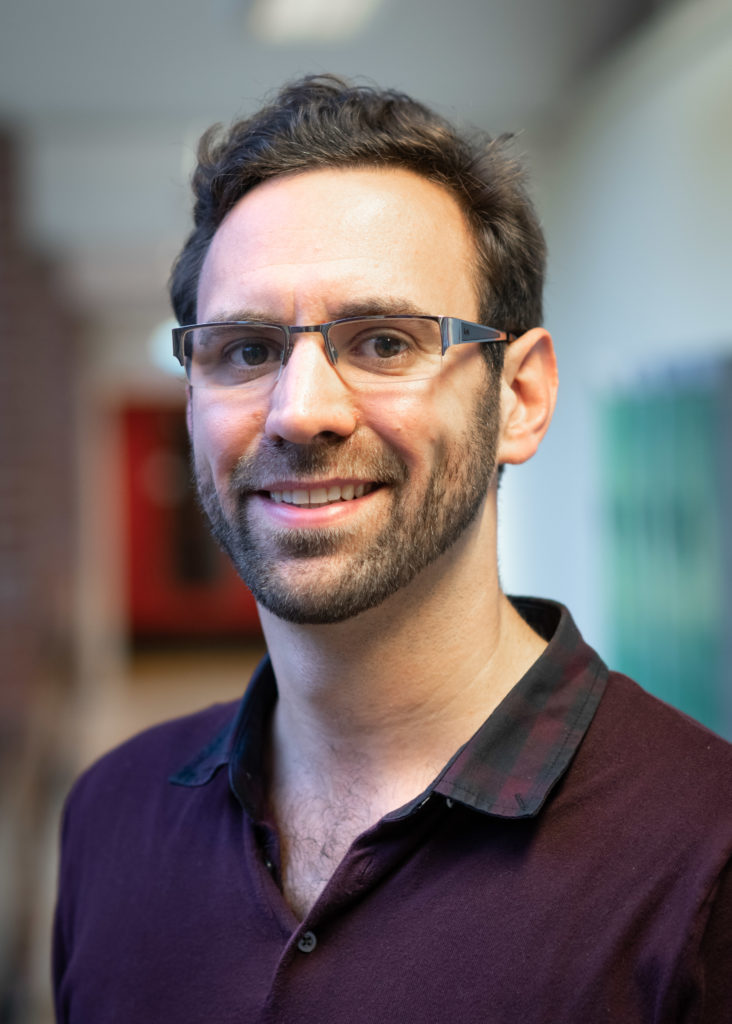
Dave Smalley, Senior Lecturer in the School of Psychology and winner of a 2023 ‘Inclusive Sussex’ Education Award, explains his approach to encouraging reflection and building a sense of community and supported collaboration in the classroom.
What I do
My approach to teaching and learning is, wherever possible, to make my teaching as interactive and engaging as possible. I also try to take my students in a learning journey, through which they are encouraged to draw on their own experiences to develop insights into the relevance and applications of psychological models and approaches.
How I do it
My final year module, Educational Psychology, is taught primarily through large workshops with half the cohort at a time (so I do have to double teach) and includes what I like to refer to as ‘pseudo-experiential learning’ although it’s probably better described as retrospective reflections. Students are encouraged to reflect on their experiences of education, family and mental health as children. The idea is that they apply an understanding of psychology theory and research attained through the prep activities/readings and tutor-led delivery of content workshops to make sense of their childhood experiences. For example, we can apply an understanding of self-presentational awareness to understand why being in a lower set for maths is demotivating. Eventually, they will learn to apply their understanding of psychology research and theory by applying professional frameworks (much as an educational psychologist would) so pedagogically, we are using student reflections to develop important employability skills for those wishing to become applied psychologists.
So how does this create community and collaboration? Firstly, the process of reflecting and sharing one’s experiences with others acts as a form of disclosure which develops intimacy and connectedness among students. Every student’s experiences are listened to and valued without judgement, and students are reminded that this is about considering a range of different perspectives, not about arriving at the ‘right answer’. The approach is particularly influential when working with students from a range of nationalities. Secondly, students are encouraged to reflect on what they valued in teachers and learning experiences in the past and to consider why they valued said teaching/learning experiences. Typically, students come to the same conclusions as the evidence supports – learning is most effective when the learners are treated like individuals and as collaborative learners, which of course is exactly what the teaching approach emphasises, so the students really get on board with it. Thirdly, the whole experience feels very relatable and relevant for students and gives them a shared goal which is key for collaboration. I often see a group of students highly motivated to ‘fix education’ as a team! An ambitious goal, but an excellent learning mindset nevertheless!
Preparing students for assessment
The reflective tasks during teaching sessions model the approach that I want students to take in their reflective portfolios. They are to identify something relevant to the topic covered in each week that is especially important to them, then seek some evidence to support/refute their position (thus promoting independent reading). This portfolio encourages continuous engagement throughout the module and scaffolds students in working at the intersection of research/theory and professional practice, something that is then assessed in the end of year exam. At the end of the module, I can guarantee that every student will have something meaningful and personal to say about every topic covered which is a fantastic outcome.
As well as the in-class activities, I provide prompts for reflection on the Canvas pages dedicated to each workshop. I also ask students to maintain their portfolios on One Note which means that I can dip in, identify some great examples of reflections and share them with the class.
Student feedback
I have been incredibly fortunate to receive a number of Education Award nominations from students over the years which suggests I’m doing something right! Nominations for my 2023 Inclusive Sussex award included:
“Dave’s Educational Psychology module stood out from the rest of my lectures as there was a real sense of community and collaboration in these lessons. Not only were we learning content but we were able to put what we learning into practice and see first-hand how others were able to tackle the same task. “
“an engaging and friendly lecturer, connecting with his students so that they feel heard and recognised. His teaching style is fun and informative, always opening up the lecture hall to ask questions and interact with the content. Im never bored or tired of his teaching, its a real pleasure learning from him and feeling like a worthy student in his class.”
Top tips
If you want to do something similar:
- Consider what encourages you to work effectively in small groups and try to bring those features to your group working activities. Relatedness, relevance, and the absence of a ‘correct answer’ work really well for me.
- Prioritise ‘interesting to students’ over ‘important academically’. The academic understanding will soon follow!
- Portfolios are an amazingly effective way to integrate group working activities into assessment and to scaffold students learning as the module progresses. They are a great example of assessment for learning so I strongly recommend you consider bringing them into your assessment if you want to apply a similar approach in your class.


Leave a Reply